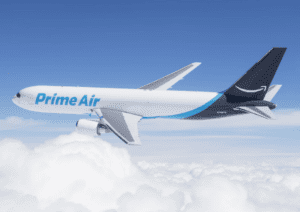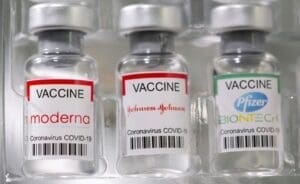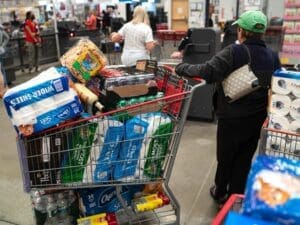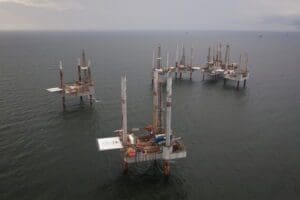 It’s hard to believe it has been twenty years since the terrorist attacks on the US. In some ways it seems so long ago as so much has changed in the world. And in other ways, it feels like it was just yesterday. I can remember exactly where I was, how I heard about it, and how I went home to watch the news for the next few days straight. I don’t feel it is necessary for me to recount my thoughts and opinions of the tragedy on this platform. But I will ask that we keep all of those affected by this tragedy in our thoughts. And now on to this week’s logistics news.
It’s hard to believe it has been twenty years since the terrorist attacks on the US. In some ways it seems so long ago as so much has changed in the world. And in other ways, it feels like it was just yesterday. I can remember exactly where I was, how I heard about it, and how I went home to watch the news for the next few days straight. I don’t feel it is necessary for me to recount my thoughts and opinions of the tragedy on this platform. But I will ask that we keep all of those affected by this tragedy in our thoughts. And now on to this week’s logistics news.
- Amazon Air continues to expand US freighter network
- US to invest $3 billion in Covid vaccine supply chain
- Costco has reintroduced purchase limits
- American Eagle, Walmart invest in direct shipping to avoid congestion
- Over 80% of oil output in Gulf of Mexico still offline a week after Ida
- US ports see shipping logjams extending through mid-2022
- Wegmans launches sustainable egg packaging chain-wide
 Amazon has been pushing its way into the full-service logistics space for a number of years, bolstering its efforts with last mile delivery vans, ocean vessels, and a fleet of jets known as Prime Air. The jets have primarily been used to move goods between Amazon warehouses across the country. Now, however, Amazon is shipping cargo for outside customers in its latest move to compete with FedEx and UPS. Amazon is also increasingly relying on flights of partner carriers that are not part of the Amazon Air fleet, such as ATI, ABX and Atlas. In all, Amazon has increased its Prime Air flight activity by more than 17 percent over the last six months, increasing both the size of its fleet as well as the number of daily flights.
Amazon has been pushing its way into the full-service logistics space for a number of years, bolstering its efforts with last mile delivery vans, ocean vessels, and a fleet of jets known as Prime Air. The jets have primarily been used to move goods between Amazon warehouses across the country. Now, however, Amazon is shipping cargo for outside customers in its latest move to compete with FedEx and UPS. Amazon is also increasingly relying on flights of partner carriers that are not part of the Amazon Air fleet, such as ATI, ABX and Atlas. In all, Amazon has increased its Prime Air flight activity by more than 17 percent over the last six months, increasing both the size of its fleet as well as the number of daily flights.
 According to a top health official, the US is planning to invest $3 billion into the Covid vaccine supply chain as it continues to work to position itself as a leading supplier of vaccines for the world. The funding will focus on manufacturers of the inputs used in COVID-19 vaccine production as well as facilities that fill and package vaccine vials. Areas of focus will include lipids, bioreactor bags, tubing, needles, syringes, and personal protective equipment. The demand for vaccines remains high in the US as Americans prepare for a third booster shot later this month.
According to a top health official, the US is planning to invest $3 billion into the Covid vaccine supply chain as it continues to work to position itself as a leading supplier of vaccines for the world. The funding will focus on manufacturers of the inputs used in COVID-19 vaccine production as well as facilities that fill and package vaccine vials. Areas of focus will include lipids, bioreactor bags, tubing, needles, syringes, and personal protective equipment. The demand for vaccines remains high in the US as Americans prepare for a third booster shot later this month.
 At the height of the pandemic, many consumers were stockpiling goods as part of a larger trend of panic buying. Toilet paper, paper towels, and disinfectants were nearly impossible to find at times. As evidence mounts that consumers are once again starting to stockpile, likely a result of the variants that are spreading, Costco has reinstated purchase limits on some products. The retailer posted a note on its website Saturday warning of “temporary item limits on select items.” Costco members have been complaining on Twitter about product shortages and purchase limits for several weeks.
At the height of the pandemic, many consumers were stockpiling goods as part of a larger trend of panic buying. Toilet paper, paper towels, and disinfectants were nearly impossible to find at times. As evidence mounts that consumers are once again starting to stockpile, likely a result of the variants that are spreading, Costco has reinstated purchase limits on some products. The retailer posted a note on its website Saturday warning of “temporary item limits on select items.” Costco members have been complaining on Twitter about product shortages and purchase limits for several weeks.
The Covid pandemic sent the demand for container ships soaring, and prices for that limited available capacity has skyrocketed. While smaller companies have tried different strategies to get ahead of the shipping crisis, large companies are taking a very different approach. Companies like American Eagle and Walmart have turned to buying shipping companies themselves. American Eagle acquired AirTerra, a Seattle-based shipping and logistics startup. This is only the company’s third acquisition, and the first that was not an apparel company. Walmart, meanwhile, has begun chartering its own ships. Chartering a container ship over the summer reportedly cost as much as $50,000 per day but was seen as a better option.
 Earlier this week, it was reported that over 80 percent of oil production in the Gulf of Mexico remains shut in after Hurricane Ida. Energy companies have been struggling to resume production after Ida damaged platforms and caused onshore power outages. About 1.5 million barrels per day of oil production, or 84 percent, remains shut, while another 1.8 billion cubic feet per day of natural gas output, or 81 percent, was offline, the Bureau of Safety and Environmental Enforcement said. A total of 99 oil and gas production platforms remain evacuated, down from the 288 originally evacuated.
Earlier this week, it was reported that over 80 percent of oil production in the Gulf of Mexico remains shut in after Hurricane Ida. Energy companies have been struggling to resume production after Ida damaged platforms and caused onshore power outages. About 1.5 million barrels per day of oil production, or 84 percent, remains shut, while another 1.8 billion cubic feet per day of natural gas output, or 81 percent, was offline, the Bureau of Safety and Environmental Enforcement said. A total of 99 oil and gas production platforms remain evacuated, down from the 288 originally evacuated.
US ports have been swamped by record numbers of containers, and the driver shortage has caused lots of delays and back-ups. This problem has only been exacerbated by the beginning of peak season heading into the holidays. Unfortunately, according to many leaders of the busiest US ports, this congestion shows no sign of slowing down. Port leaders are suggesting that the congestion will last until at least the middle of 2022, and the National Retail Federation (NRF) seems to agree. According to the Global Port Tracker report produced by Hackett Associates for the NRF, major US ports were forecast to handle the equivalent of 2.37 million imported containers in August, the most for any month in records dating to 2002. The NRF projects overall inbound volumes for the year will reach 25.9 million containers, breaking the record of 22 million boxes in 2020.
Companies continue to look for new sustainability initiatives, especially when it comes to reducing packaging waste. As part of its wider effort to improve sustainability of its private label branded packaging, Wegmans has introduced new egg cartons. Previously made from polystyrene foam, the new packaging is made of 100% post-consumer recycled newsprint and paper products. By switching from foam to molded fiber cartons, Wegmans said that it will eliminate 625,000 pounds of foam from its stores annually.
That’s all for this week. Enjoy the weekend and the song of the week, Billy Joel’s New York State of Mind from the Tribute to Heroes telethon.

















